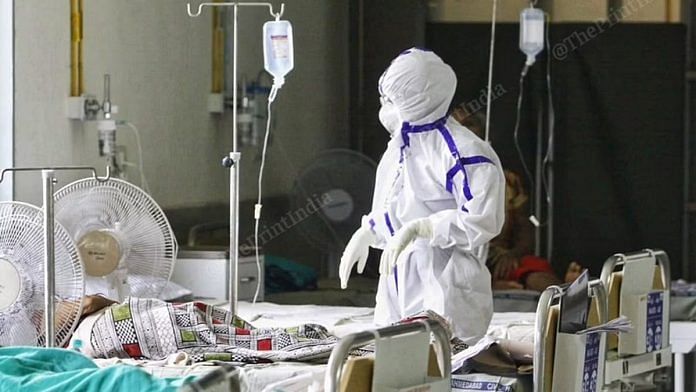New Delhi: Since the start of the Covid-19 pandemic, China’s censors have been hard at work to contain or obstruct scientific research on the virus, an investigation by The New York Times has found.
A review of over a dozen retracted papers by The NYT has revealed that China had revised or suppressed research on early cases and censored topics “that could make the government look bad”.
China’s crackdown on scientific research has also hindered efforts to find the origins of the virus, the report added, amid allegations that the Chinese government did not respond quickly enough to the outbreak.
The NYT cited a paper published jointly by scientists from the US and China in February 2020 that contained “critical data” on how fast the virus was spreading and the number of people dying from it. The paper was withdrawn within days of publication.
Ira Longini, one of the authors of the study and who is with the University of Florida, has been quoted as saying, “It was so hard to get any information out of China… There was so much covered up, and so much hidden.”
Some of the other retracted papers include studies on children infected in southern China, depression and anxiety among medical workers treating Covid-19 patients in China and a letter published in The Lancet Global by two nurses who worked at Wuhan hospitals.
“Even experienced nurses may also cry,” the nurses had written in their letter.
A task force to ‘manage’ coronavirus research
Days after the February 2020 death of Chinese doctor and whistleblower Li Wenliang, who was subjected to an investigation for raising an alarm about the coronavirus, the Chinese government formed a task force to oversee all research on the novel coronavirus.
In March that year, scientists from top Chinese laboratories published a paper in the Clinical Infectious Diseases, a journal by the Oxford University Press, on how the coronavirus was mutating.
The study was based on samples collected from patients in Wuhan in mid-December 2019, adding to evidence that the Chinese government did not take action when the virus was spreading rapidly. Two months later, the paper was revised or rewritten to say that the samples were collected in January, not December. There was a third revision, saying the samples were collected between 30 December, 2019 and 1 January, 2020.
Following the publication of this research, the NYT report noted, China’s Ministry of Education had ordered all universities to submit research topics to the government task force for approval, failing which they were threatened with punishment.
Vanishing records
The NYT report also noted that the World Health Organization has helped little in clearing the confusion around the virus’s origin.
Reacting to a “flawed” March 2021 report on Covid by the agency and China, Lawrence Gostin, faculty director of Georgetown University’s O’Neill Institute for National and Global Health Law and a longtime WHO adviser, said, “It either shows that WHO wasn’t insistent enough with China, or that China simply didn’t cooperate.”
The report also said that many genetic databases have been deleted globally, at the direction of the Chinese government. In June 2021, an evolutionary virologist from Seattle, Jesse Bloom, discovered that “dozens of gene sequences” submitted by Wuhan scientists were deleted from a government database in the US.
According to the NYT report, these were deleted at the request of scientists from China.
“Among people who were sick in December, we have less than 20 sequences,” Virginie Courtier-Orgogozo, an evolutionary biologist at the French National Center for Scientific Research, has been quoted as saying.
Also read: New Covid origins data indicates virus may have started from Wuhan wet market, not a lab leak



